Earn Your Bachelor of Arts in Directing from the Sargent Conservatory
Directors are storytellers. As students of directing begin their journey toward a career in theatre, the coursework for Webster’s Conservatory of Theatre Arts Bachelor of Arts degree in Directing vigorously stresses the directing craft, while providing opportunities for students to discover stories they want to tell.
Our directing program is highly specialized, combining elements of directing, acting, design, and stage management. Practical experience supplements classroom work, and Conservatory directors assist on professional productions, such as those at Repertory Theatre St. Louis, a nationally recognized League of Resident Theatre (LORT) organization. Combined with a senior semester studying abroad, the directing program provides a rich environment of learning for the student director, culminating with a capstone directing project in the final semester.
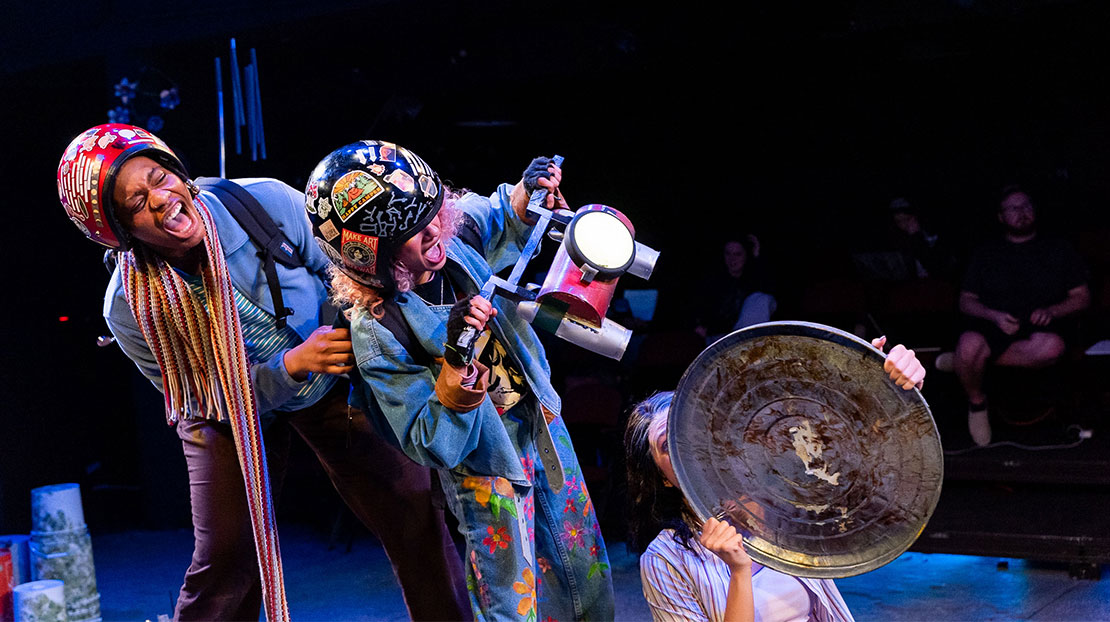
Rain and Zoe Save the World, 2023
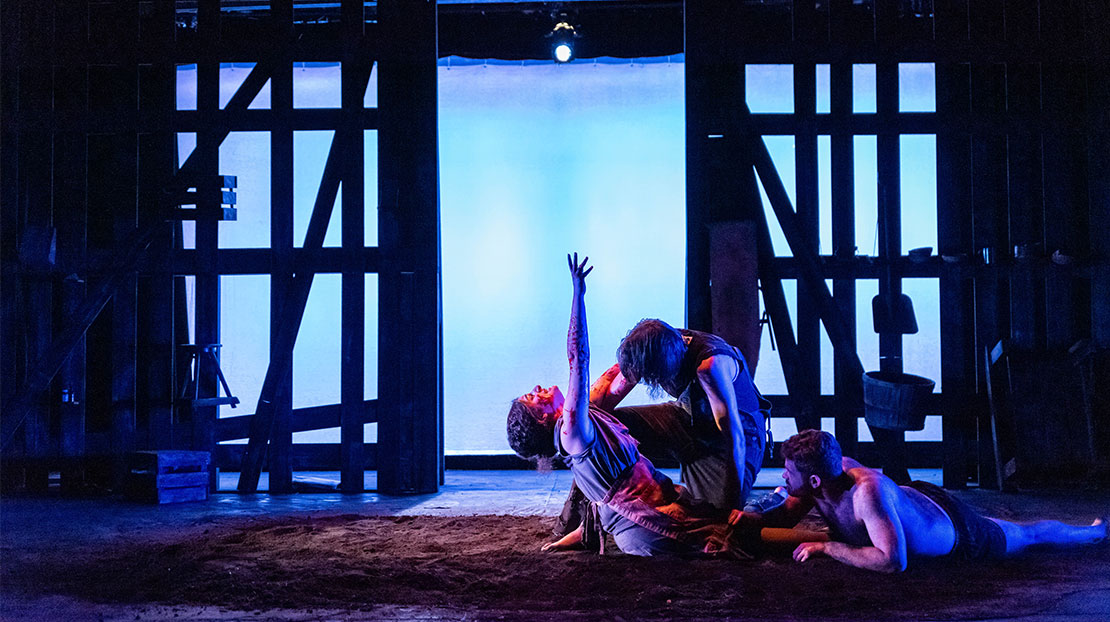
Mud, 2023
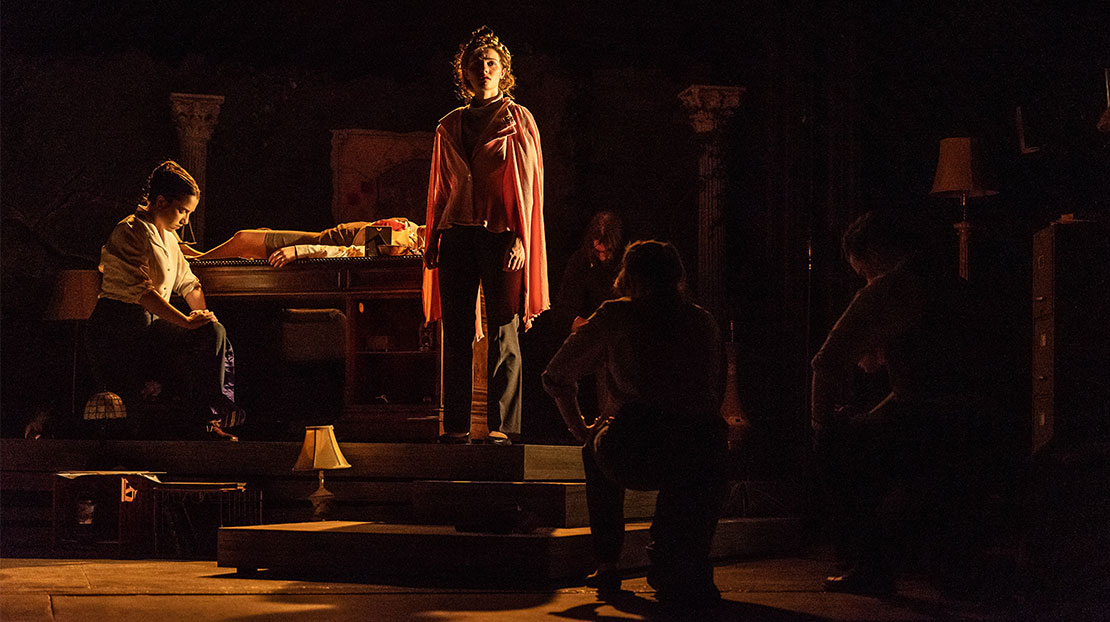
Burial at Thebes, 2022
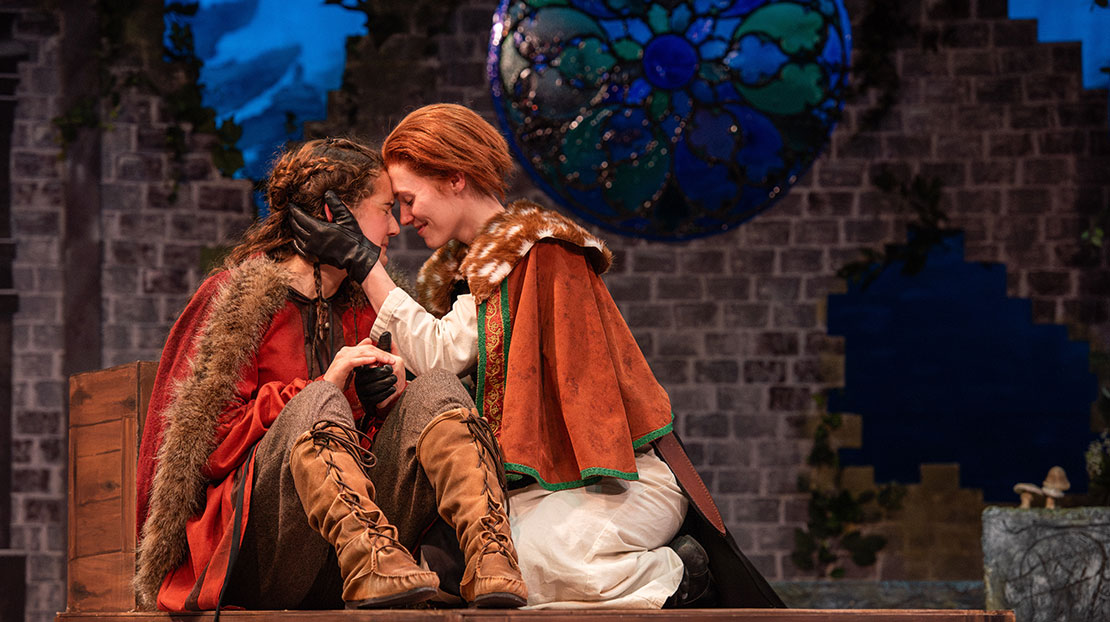
Silence, 2024
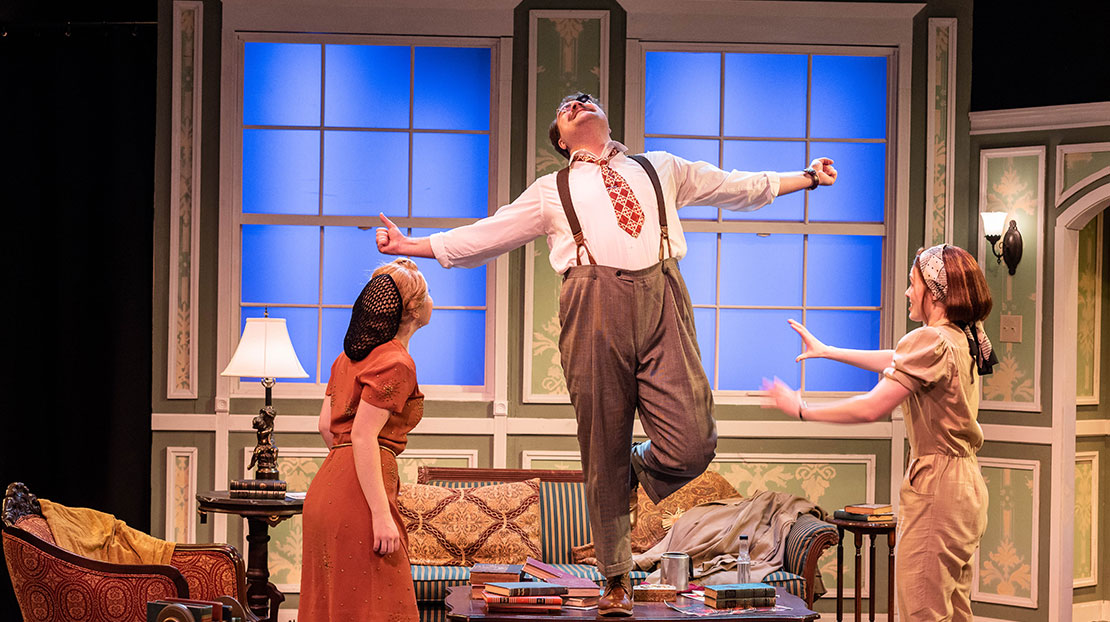
Bright Room Called Day, 2023
Choose Webster for Your BA in Directing
Train with the Pros
Sargent Conservatory’s training program benefits from several professional partnerships, including collaborations with the Repertory Theatre of St. Louis, St. Louis Shakespeare Festival and The Muny. We are able to offer students unparalleled opportunities to work alongside professional theatre artists, directors and designers in the city’s thriving theatre scene.
Our students also benefit from studying in a city that boasts an internationally renowned opera company and orchestra, a vibrant music scene and a number of excellent art museums
Broaden Your Global Theatre Perspective — Study Abroad in London
Webster’s commitment to Study Abroad is a key element of the BA in Directing. As the Shakespearean character, Jaques, from “As You Like It” once said — “All the world’s a stage,” and Webster’s Study Abroad program is an opportunity for students to broaden their perspectives and sharpen their curiosities.
Mentorship from Experienced Faculty
Conservatory faculty members are working professional artists, published writers, playwrights and dedicated educators committed to diversity, equity and inclusion. Their work includes Broadway, off-Broadway, regional and international credits, as well as projects in a variety of other fields (film, television, voice-over, corporate events).
Gain Professional Directing Experience
Directing program students work on five major directing projects during their four years at Webster. Each of the productions require extensive research, which takes on historical, psychological, sociological and philosophical concerns relevant to the play’s time and place. You will spend hours implementing creative problem solving, team building, overseeing design elements and leading rehearsals. You will also learn to create and adhere to a budget, collaborate with a team and meet an opening night deadline.
Webster's Sargent Conservatory Curriculum
Directing majors will spend the bulk of their first-year training alongside the performance majors. Learning how to perform and how to communicate with performers is integral to the craft of directing. Key classes will include:
- Acting
- Voice and speech
- Movement
- Text analysis
- Makeup
- Theatre history
In their second year, directing majors will begin the Directing sequence and serve as assistant directors for Conservatory productions. Students will take several of their theatre classes alongside design and technical theatre majors. Learning the basics of visual storytelling and of communicating with a design team are critical for a director. Key classes will include:
- Directing 1 and 2
- Visual history
- Fundamentals of design
- Prop design
- Shakespeare
The third year challenges directing majors to bring stories to full theatrical life. Students will also serve as assistant directors for professional productions. Classes entail a combination of performance and design classes:
- Directing 3 and 4
- Improv
- Stage management
- Lighting design
The fourth year is designed around two major experiences. In Fall, directing majors will study abroad. In Spring, directing majors will lead a capstone directing project, putting to use all the skills learned up to now.
BA in Directing
Find out more about the overall curriculum, electives, learning outcomes and more.
Theatre Scholarships
Almost every full-time undergraduate student at Webster University receives some sort of financial aid. Webster’s Office of Financial Aid is committed to making a college education affordable.
Additionally, the Sargent Conservatory of Theatre Arts awards annual scholarships designated specifically for theatre majors. In 2023-2024, the department awarded over $225,000 in scholarships to its students. Most of these awards are reserved for our third- and fourth-year students. Every year we also allot some scholarships to first-year students. These awards are made in consultation with the recruiting faculty and with the Office of Financial Aid. There is no separate application process. Please contact Andrew Laue, Associate Director of Fine Arts Admissions at lauear@webster.edu, for additional information.

“I want to tell stories about my Latinx roots because our culture is quite underrepresented in theatre, and I also want to amplify female voices, especially those of women who have been ignored by history.”

BA in Directing, ’25

Apply Today for the BA in Directing

At Webster's Sargent Conservatory of Theatre Arts, we'll help you achieve academic excellence, preparing you for future career successes. The first step — fill out an application.
Contact Doug Finlayson, Head of Directing Program
Frequently Asked Questions
Get Started on Your Bachelor's Degree in Directing
Take the next step toward earning your BA in Directing — we are here to help you get started.
Explore
Learn more about our academic programs and our main campus and locations.
Engage
Connect with our admissions counselors and academic advisors.
Apply
Apply to Webster and take the next steps for financial aid and scholarships.
Contact the Admissions Office to Find Out More
If you have more questions about the program, your application or other enrollment-related inquiries, contact our Admissions Office.
Call 314-246-7800 or 800-753-6765 or send an email to admit@webster.edu.



